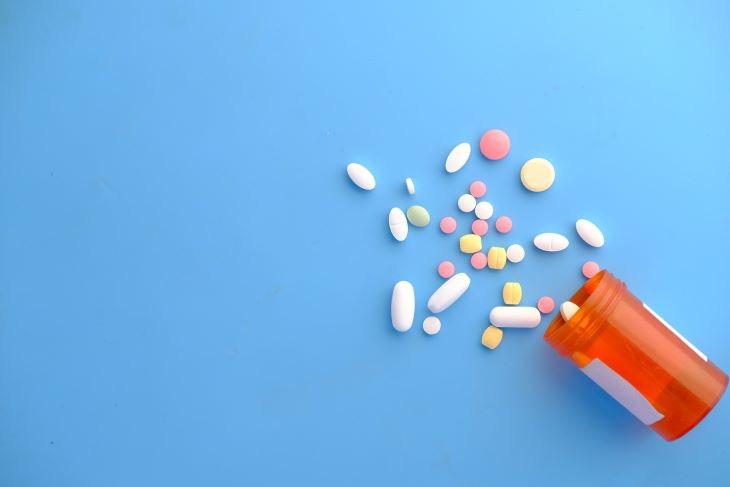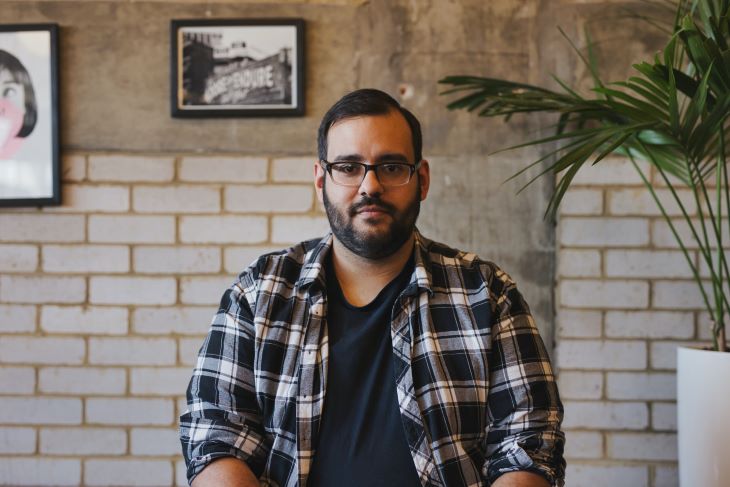Drug and Alcohol Rehab in Nottingham
Quick Links for help with addiction in Nottingham
- What Are The Benefits Of Alcohol Rehab in Nottingham?
- What Happens During Alcohol Rehab In Nottingham?
- What Treatments Will I Receive At Drug And Alcohol Rehab In Nottingham?
- What Types of Addictions Are Treated At Rehab?
- What is an Aftercare Programme?
- Frequently Asked Questions About Drug and Alcohol Rehab in Nottingham
Do you live in Nottingham and suffer from an addiction to drugs or alcohol?
Unfortunately, many people across the UK and the world struggle with alcoholism and substance misuse.
These problems range from life-changing health issues to crippling debt and broken relationships.
If you’re ready to beat substance abuse once and for all with the help of a drug and alcohol rehab in Nottingham, call our expert team today on 0800 088 66 86
What Impact Can Drug and Alcohol Addictions Have on a Person?
Today there are approximately 3,700 opiate users in Nottinghamshire alone [1], and around 10,100 individuals who are dependent on alcohol.
Though the East midlands is low on the scale for drug and alcohol misuse when compared to other parts of England, there is still clearly still a problem with substances in the city of Nottingham.
In 2020, just under 70 deaths were recorded as a result of drug and alcohol use in the city [2], and the pandemic could be to blame for this spike.
With people being forced to stay at home and help for addiction harder than ever to reach during the Covid-19 epidemic, it is no surprise that lockdown has made things worse for so many people suffering with substance use disorders.
If you think your substance use began or was aggravated as a result of the 2020 pandemic, getting help is going to be a key step.
With specialised rehabilitation treatments for substance use disorders, behavioural addictions and physical dependence, you can receive help for your addiction, no matter how uncommon.
Following an assessment by The DSM-5 assessment [4] or The American Society of Addiction Medicine’s Patient Placement Criteria [5], you could receive an official diagnosis.
As each person and their addiction is unique, rehabs can create a person-centred care plan.
Some of the addiction rehab centres in Nottingham treat are:
- Alcohol addiction
- Cannabis addiction
- Cocaine addiction
- Ketamine addiction
- Gambling addiction
- Benzodiazepines
- Gaming addiction
- Shopping addiction
- Opioid use disorders
- Prescription drug addiction
What Impact Can Drug and Alcohol Addictions Have on Families?
The impact of alcohol on families is so significant that alcoholism can sometimes be detected simply by observing the mental health of the people in the home.
Families dealing with alcoholism are more likely to have strained relationships, mental health issues and economic problems.
If a mother is drinking while pregnant, there can be serious effects on the baby’s well-being. Foetal alcohol spectrum disorder [6] is often the result, and the symptoms affect the child for the rest of their life.
They may struggle with communication, emotional regulation, learning, balance, and physical health problems.
Other family members are also impacted by alcoholism – not just children. When someone is addicted to alcohol, they may isolate themselves and turn against their loved ones.
This affects everyone in the person’s life, but particularly their spouse, children, parents, siblings, and friends.
Get the help you need from a drug and alcohol rehab in Nottingham by calling our team today on 0800 088 66 86
Your Addiction Is Not Your Fault

Image above: Group hug in a rehab in Nottingham
No one chooses to become addicted to a substance, it is something that can happen to anyone, at any time.
This is why the addiction that you are experiencing is not your fault.
People misuse drugs and drink alcohol for a plethora of different emotional and physical reasons, many of which we have experienced ourselves in the past.
No matter the reason for your substance use, recovery is still possible.
Don’t let the stigma of addiction stop you from getting help from a drug and alcohol rehab in Nottingham – call our team today on 0800 088 66 86
What Is Alcohol Addiction?

Alcohol addiction is one of the most common substance addictions in Nottingham. Compared to the statistics for England [7], Nottingham city has significantly more years of life lost due to alcohol-related conditions (843 per 100,000) and higher rates of benefits claimed due to alcoholism (264.9 per 100,000).
The difference between alcohol consumption and alcohol addiction is that the latter is a mental health condition that affects all parts of the alcohol user’s life.
Below, we provide some statistics about alcohol and drug use in Nottingham:
| Drug and Alcohol Statistics in Nottingham (2020/21) | Data |
| Alcohol-related deaths in Nottingham | 120 |
| Hospital admissions for alcohol-specific conditions | 2,075 |
| Estimate number of students using substances | 11,800 |
| Number of new presentations into treatment | 50 |
When someone has lost control of their alcohol consumption, they are either dependent on the substance, or they are addicted to it.
Alcoholism exists on a spectrum. There are mild, moderate and severe [8] cases of alcohol use disorder.
Each one requires professional treatment, but severe alcohol use disorder is much more likely to lead to serious illness or even death if left untreated.
The symptoms of alcoholism are not the same for every patient at a rehab in Nottingham, but they often include:
- Reduced motivation
- Increased tolerance
- Behavioural changes
- Isolation
- Insomnia
- Headaches
- Withdrawal symptoms
- Strong cravings for alcohol
Find the help you need to overcome alcohol addiction at a drug and alcohol rehab in Nottingham by giving us a call today on 0800 088 66 86
What Are The Benefits Of Alcohol Rehab in Nottingham?

Alcohol rehab in Nottingham is the best place to be if you are struggling with your relationship with alcohol. It’s a supportive setting with patients from all backgrounds [9] successfully recovering from alcohol use disorders.
Most rehabs in Nottingham have shared goals for their patients, and we see these goals in the attitudes of many addiction experts.
They want patients to experience a better quality of life, a lower risk of relapse, and a substance-free lifestyle.
Some rehab centres promote harm reduction, which means patients are not discouraged from using substances entirely – they are simply taught to avoid excessive consumption.
However, the majority of Nottingham clinics are against this style of treatment. They take an abstinence-based approach, which means they encourage patients to stay sober no matter what.
Abstinence At Drug And Alcohol Rehab In Nottingham
Abstinence – the act of abstaining or avoiding something indefinitely – has been known to spark controversy as the basis for addiction treatment services.
Though many people living in recovery and others attempting to do so swear by abstinence, there are others who label it as unnecessary, or too difficult to sustain.
The truth is that abstinence has been proven to be a hugely effective path to a successful recovery, and has already helped millions to live a substance-free life.
Many experts have agreed that abstinence is always the safer and more effective route to addiction recovery.
There are instances where abstinence is the only way to treat the addiction, as any further use of alcohol or whichever substance the individual has used could cause even more irreversible damage to the body.
Abstinence is also a necessary alcohol or drug addiction treatment tactic for individuals who have struggled with withdrawal in the past and are prone to relapses.
A lot of psychological addictions are hard to treat with this approach, but for the majority of the more physical drug or alcohol addictions, abstinence is often the best route.
Get the help you need to achieve and maintain abstinence at a drug and alcohol rehab in Nottingham by calling our team today on 0800 088 66 86
How Effective Is Rehab In Treating Drug Or Alcohol Addiction?

Image above: Two men hugging at a drug and alcohol rehab in Nottingham
As we have discussed, rehab is the safest and most effective way to treat drug and alcohol addictions.
When patients opt for residential rehab, they have the best chance of staying sober for the rest of their life.
Many addiction specialists agree that both the detox and therapy stages are at their most effective when they take place in a residential setting.
This is due to the round-the-clock care at rehab, the reduced amount of triggers, and the comprehensive approach that rehab centres take.
In some cases, outpatient treatment can be just as effective as inpatient rehab. [10] However, this should be analysed on a case-by-case basis.
For example, if a patient has a history of seizures, it is not advisable for them to get an outpatient detox. They should instead undergo a detox in a medically-supported setting.
What Percentage of Alcoholics Recover?
According to Alcoholics Anonymous’ Big Book [11], the percentage of people who recover from alcoholism is around 50% (25% report an improvement in symptoms).
However, this is a hotly debated topic as alcoholism cannot be cured.
This means the percentage of recovered alcoholics depends on the definition of ‘recovered’.
We usually describe someone as ‘in recovery’ when they are no longer drinking, and they do not frequently experience symptoms of alcoholism (unless the symptoms are ongoing from previous alcohol consumption).
As relapse is common with alcoholism, there are many cases of individuals recovering but then returning to their addictive behaviours.
This is another reason it is difficult to give a statistic on the percentage of recovered alcoholics.
To find out just how much a drug and alcohol rehab in Nottingham can help you, give our team a call on 0800 088 66 86
What Is a Medically-Assisted Drug or Alcohol Detox?

Medically-assisted detoxes are detoxes that make use of specialised medication. Some detoxes do not require medication, as their withdrawal symptoms are not intense enough to warrant it.
This may be the case if the addiction is mild, the substance does not respond well to certain medications, or the patient has a separate health condition that could be negatively affected by medication.
However, plenty of people at rehab in Nottingham receive medication as part of their detox.
It may be given to lower the intensity of symptoms (e.g. tremors), prevent symptoms (e.g., seizures), or even stop the withdrawing drug from creating a reaction in the patient.
Opioid use disorder is commonly associated with medically assisted detoxes. One study found [12] that it made up 75% of inpatient detoxifications in the United States.
Medications such as methadone, naltrexone and buprenorphine are often prescribed as part of opioid detoxes.
Is Detox With No Rehab Possible?
Detox with no rehab is possible, but it is not the safest option.
If you can afford to go to rehab in Nottingham, and you have a substance use disorder, it is better to get a detox in rehab due to the 24/7 supervision that is provided.
However, plenty of outpatient services offer detoxes, often taking place zt a rehab centre.
If you take this route, you could have a similar detox experience to someone at inpatient rehab in Nottingham.
The big difference would be that you would not be staying over at rehab. This means any symptoms you experience would not be monitored by staff outside of the working day, which could potentially be dangerous.
It is essential that you have a supportive family if you opt for an outpatient detox, including home detoxing. Addiction experts always recommend this [13] as the lack of 24/7 care needs to be counterbalanced by a huge amount of support from the people you love.
If not, the risk of relapse is very high.
Detoxes that take place outside of a professional setting are completely unsafe.
With outpatient detoxes, you still get professional input while you are in treatment. However, if you attempt to detox alone, there will be no support available and this can be disastrous.
You need a healthcare professional who understands what safe detoxing is.

How Long Does Detox Last?
Detoxing from drugs or alcohol takes between 3-14 days on average. Factors that can lengthen the detox phase include:
- Not being sober at the start of the detox
- Having a severe addiction
- Being addicted to a substance that takes longer to leave the body
- Being a dual-diagnosis patient
- Having a physical health problem
- Relapsing
If you detox at an inpatient rehab in Nottingham, the last factor does not have to get in the way of a successful detox.
As you will be supervised throughout the detox, there will not be an opportunity to fall back into your old behaviours.
What Happens After Initial Detoxification?
If you have agreed to get therapy as part of the 28-day treatment programme, this will begin when you have completed the detox. Group therapy is often a key element of Nottingham rehab, so you won’t be approaching this treatment alone.
That being said, there will be plenty of individual therapy sessions scheduled as well as group and family sessions.
A combination of all three is ideal as it exposes you to different recovery techniques and provides you with a well-rounded education on addiction.
A typical day at rehab involves a lot of therapy. This will be broken up to prevent burnout, so you will also get to:
- Socialise
- Play sports
- Rest
- Enjoy healthy meals
- Attend workshops
For most patients, the daily schedule stays consistent for 28 days. Following a structured programme means that patients know what to expect when they wake up in the morning, and this reduces feelings of being overwhelmed.
A range of therapies are offered at Nottingham rehab. One of the most common is cognitive behavioural therapy, which is better known as CBT.
This can be highly effective [10] for treating cannabis and nicotine dependence, as well as reducing symptoms of psychotic disorders.
Make sure that your medically-assisted detox is safe and effective with the help of a drug and alcohol rehab in Nottingham by giving us a call on 0800 088 66 86
What Happens During Alcohol Rehab In Nottingham?

When you go to alcohol rehab in Nottingham, you will need to have various assessments to determine which style of treatment you need.
Most patients will begin with an alcohol detox and then therapy sessions, but some people will follow a treatment programme that is less traditional (i.e., no detox or no inpatient care).
However your treatment plan looks, you will be well informed on the structure of your rehab stay before you begin.
There will be an opportunity to meet people at rehab, learn about the 28-day treatment programme, and generally settle in.
After this, most patients will have a medically-assisted alcohol detox. It is usually a requirement to get sober before this, but some rehabs will begin the withdrawal process at the time of the detox.
Medication is often given to reduce various alcohol withdrawal symptoms and to prevent the patient from experiencing strong cravings for alcohol.
Medical staff will monitor the patient as they experience detox, and the individual in recovery will be encouraged to be open about any symptoms they are experiencing. This ensures staff can adapt the detox as necessary.
After the detox, therapy sessions will take place. All patients are advised to have therapy as it places an emphasis on the psychological impact of alcoholism, whereas detox will focus on the physical symptoms.
Until you arrive at rehab in Nottingham, you won’t know exactly what your treatment will look like.
This is a good thing, as there is no one-size-fits-all treatment method [14] for addiction.
The staff at rehab need to get to know you and your addiction before delivering treatment, to ensure your programme is tailored to you.
The final stage of rehab is putting together the aftercare plan. This is a type of support that is in place after your time at rehab, often for around 12 months.
It reduces your relapse risk by allowing you to get informal treatment (e.g., self-help groups and accountability calls) as well as formal treatment (e.g., therapy).
To learn more about what exactly happens at a drug and alcohol rehab in Nottingham, talk to our experts today on 0800 088 66 86
What is Inpatient Addiction Treatment?

However, the benefits to a residential programme like this can make the time you invest in one well worth it.
Residing in the rehabilitation centre for the entirety of your recovery journey means you have constant access to treatment, therapy and addiction counselling, and the help of the highly-trained staff members on site.
You will experience a safe and medically-guided drug or alcohol detox, you will receive the appropriate prescription drugs and support to help ease your drug or alcohol withdrawal symptoms (such as shaking, sweating, headaches, delirium tremens and seizures), and you will be monitored closely throughout this vulnerable time to ensure you are on track.
Librium is one widely used prescription drug that helps to tackle some of the more intense addiction withdrawal symptoms.
After an alcohol or drug detox, you will have ample time to participate in multiple forms of therapy that have been chosen specifically for you, without any distractions from back home interfering with your journey.
Residential Alcohol Rehab Vs. Outpatient – Which is Better?
Staying on-site also means you will not be able to access any further substances, so you can be sure that a relapse will not occur.
During your stay, you will be able to meet and connect with other clients at the rehab clinic who may be helpful to your recovery, and can share and hear stories about how others have dealt with alcohol or drug addiction.
You will always have support whenever you need it during a residential rehab programme – unlike during outpatient treatment – and you will never have to feel alone or isolated – the way that addiction can often make you feel.
To gain all the benefits of a residential drug and alcohol rehab in Nottingham, call our team today on 0800 088 66 86
Is Addiction Treatment Accessible Through the NHS?

Addiction is not considered a ‘choice’ or ‘moral failing’ on behalf of the addiction sufferer – rehab is about treating the disease of addiction.
You will have the option, as you search for help for your addiction, to either choose private or council-funded treatment.
Just like any other route to recovery, the two options come with both benefits and drawbacks.
The benefits to choosing a private option for your care include:
- Sticking with the same therapist and the same clinic for the duration of your recovery journey
- A quicker admissions process so that you can receive the help you need as soon as possible
- A medically guided detox either at home or in rehab
- Important referrals to specialist clinics if necessary
- No distractions from home interfering with your withdrawal
- Bespoke treatment plans
- The chance to learn techniques that aid in preventing relapses, and that can help you identify and avoid your personal triggers
- Experienced staff
- 24/7 support
- Support and aftercare services even after your rehabilitation programme comes to an end
I Can’t Afford Drug and Alcohol Rehab – I Don’t Have Insurance. What Can I Do?
Charity-funded, NHS and NHS Foundation Trust treatment services in Nottingham include:
1. Turning Point Nottingham
Telephone: 0808 196 3779
Website: https://www.turning-point.co.uk/services/nottingham-helpline
2. CAMHS Nottingham
Address: The Manor Academy, Park Hall Road, Mansfield Woodhouse, Nottinghamshire, NG19 8QA
Telephone: 0115 844 0520
Website: https://www.nottinghamshirehealthcare.nhs.uk/camhs
3. Nottingham Recovery Network
Address: 73 Hounds Gate, Nottingham, NG1 6BB
Telephone: 0800 066 5362
Website: https://www.nottinghamrecoverynetwork.com/
4. Change Grow Live
Address: Ground Floor, Crown House, Newcastle Avenue, Worksop, S80 1ET
Telephone: 0115 8960798
Website: https://www.changegrowlive.org/nottinghamshire
With council-funded treatment, the main benefit is that it is free of charge.
However, with free treatment you may have to wait longer to be admitted to a rehab, this rehab may not be the most suitable for your situation, and you may have to see different therapists, visit multiple clinics, and miss out on personalised treatment.
We recognise that some will not be able to pay for private treatment, and we know that for many, council-funded treatment can still offer a suitable path to a substance-free life.
Nevertheless, we will almost always recommend private treatment in a drug and alcohol rehab in Nottingham so that our clients have the chance to reap its many benefits.
Whatever help you need, whether from a private or public rehab centre in Nottingham, let our expert team help you get it by calling us on 0800 088 66 86
Is Rehab My Only Option?

Though rehab clinics can be beneficial to everyone who is experiencing an addiction or substance use disorder, ultimately it is more suited to people who have no other options.
This means that those who are able to recover via other routes (such as through mutual support groups such as Alcoholics Anonymous Nottingham, Narcotics Anonymous Nottingham, Cocaine Anonymous or SMART Recovery, or at home), will be recommended to do so, to make sure that rehab can be accessed by the people who really need it.
People such as:
- Those who may become a danger to themselves or the people around them whenever they use substance.
- Those who may be experiencing a mental health disorder as well as an alcohol or drug addiction who will therefore require treatment for both.
- Those with mental health issues that would interfere with recovery attempts outside of rehabilitation.
- Those who are experiencing suicidal thoughts as a result of their addiction or co-occurring mental health disorder.
- Those who are drinking over 30 units a day.
- Those who have scored high on AUDIT and other similar tests (see below).
What Are Self-Help Groups?
Self-help groups are organisations set up to help people recover from addiction outside of rehab.
You can go to a self-help group as an alternative to rehab treatment, but it works best when used as an aftercare tool when you leave rehab.
There is no time limit to self-help groups, so you could attend meetings for the rest of your life and keep your relapse risk as low as possible.
Alcoholics Anonymous, SMART Recovery and Narcotics Anonymous are all examples of self-help groups in Nottingham. Each one provides meetings with a trained therapist and a group of individuals who are struggling with addiction, or who are in recovery.
These groups take a non-judgemental approach to addiction [15]. When you attend a meeting, you are free to discuss even the most taboo parts of addiction without feeling judged.
Still unsure is drug and alcohol rehab in Nottingham is right for you? Talk it over with our team today on 0800 088 66 86
What is the Admissions Process for Rehab in Nottingham Like?

Before you can fully be admitted to a drug and alcohol rehab clinic in Nottingham, you must first go through some more simple tests to ensure you are on the right treatment path.
Personalised care in rehab is extremely important and can increase your chances of a full recovery, so we work hard to make sure these tests tell us exactly what you need in order to succeed.
One of these tests will be to take a look at your life and your addiction against the six dimensions of the ASAM criteria [16].
Created by the American Society of Addiction Medicine, these criteria allow professionals to analyse clients and identify their specific needs and preferences for treatment.
The test looks at your living environment, your motivation to change, your physical and mental history, and your past experience of drug or alcohol withdrawal and relapses.
With this information, we can determine how best to offer you support, guidance, and crucial drug addiction treatment during this vital stage of your journey.
What is an AUDIT?
To help us determine how low or high risk your use of alcohol is (which in turn helps us provide you with the most suitable care and treatment) we will most likely perform a few simple tests.
One of these tests will be an AUDIT – an Alcohol Use Disorders Identification Test [17].
This AUDIT is a quick 10-question quiz that will allow us to see how severe your condition may be, so that we can begin referring you to the right places.
A few of the questions to expect in this AUDIT include:
- How often during the last year have you needed an alcoholic drink in the morning to get yourself going after a heavy drinking session?
- How often have you had 6 or more units if female or 8 or more if male on a single occasion in the last year?
- How often during the last year have you been unable to remember what happened the night before because you had been drinking?
For each question, you will answer truthfully on a scale of 0-4.
The number you give for each question will then be added at the end of the test to provide you with a final score.
A score of anything between 0-7 shows that you are likely low-risk, and do not need much more intervention or treatment for your drinking.
A score between 8-15 indicates that you are an increasing risk for an alcohol use disorder, meaning you may be monitored and receive check-ins to ensure you do not become a high risk.
A score of 20 or higher indicates the presence of alcohol dependence. In the eventuality that you score above this number, your doctor will refer you to the necessary NHS service or drug and alcohol rehab clinics in Nottingham, so that you can begin treatment for your substance use.
DSM-5 – Why this is used by rehabs

Another common way of testing the severity of your situation is through the DSM-5.
The Diagnostic and Statistical Manual of Mental Disorders-Fifth edition [18] was created by hundreds of mental health experts and helps professionals and clinicians realise how serious clients’ substance use disorders are.
Similar to an AUDIT, the higher your score the more severe your situation likely is.
With the DSM-5, the more symptoms you resonate with out of the 11 criteria, the higher your risk of substance use.
2 or 3 indicates the existence of a mild substance use disorder, 4 or 5 shows the signs of a more moderate disorder, and 6 or more is indicative of a severe substance use disorder or in other words an addiction.
Start the admissions process at a drug and alcohol rehab in Nottingham by giving our team a call today on 0800 088 66 86
How Can I Convince a Loved One to Receive Drug and Alcohol Rehab?
An intervention should be sought if the affected individual (this could be your friend, family member, or even colleague) is showing the signs of a drug or alcohol addiction, but is refusing to seek help for themselves.
You should also consider an intervention for your loved one if they are known to become dangerous to themselves or others when they are intoxicated or high.
In these circumstances, however, only a professional interventionist should intervene, and you should not approach your loved one about the idea alone – to ensure your own safety.
We are able to link you with a highly-trained professional interventionist – one who has likely experienced alcohol or drug addiction themselves in the past.
The job of an interventionist is to coach you, your family, and the affected individual away from substances and towards a happy ending.
To do this, they will teach you tactics on how to offer help to your loved one in ways you may not have thought of before, help you write letters that will be read aloud to your loved one during an intervention, and much more.
If at the end of the intervention your loved one accepts the offered help, the interventionist working with your family will escort them to their chosen drug and alcohol rehab in Nottingham.
If they once again refuse the help and treatment that is being offered, the interventionist will remain with you and your family until your loved one makes the better choice.
Can I Force My Loved One To Go To Rehab In Nottingham?
You cannot make any adult get a referral to rehab in Nottingham. If you’re asking this question, it’s important to consider why this is your intention.
It’s common for relatives of people with addiction to be forceful when dealing with the issue, whether that’s trying to force rehab on someone or simply using aggressive language when broaching the subject.
We understand that it’s incredibly difficult to stay calm and collected when you’re watching addiction destroy your loved one’s life.
However, the best thing you can do when this happens is to stay supportive and assertive (rather than aggressive).
There’s nothing wrong with discussing rehab, nothing wrong with promoting it, and nothing wrong with asking your relative to speak to an addiction specialist. However, if they refuse, you must try to let go of responsibility.
You can keep recommending rehab, but you can’t force it.
Make sure that your loved one gets the help they need from a drug and alcohol rehab in Nottingham by calling our team today on 0800 088 66 86
How Much Does Drug & Alcohol Rehab In Nottingham Cost?
The cost of rehab can change dramatically depending on many aspects of your treatment, the time you require in rehab, and the type of room you choose to stay in.
Feel free to get in contact with us today if you have any concerns about the listed prices below, or if you would like to hear about more options.
We will always try to work around specific budgets or fluctuating financial situations to get you the treatment that you need.
The average prices for a range of programmes available in a drug and alcohol rehab in Nottingham include:
- A 10-day detox in your own room: £3,000 – £6,000
- A 10-day detox in a shared room: £2,000 – £4,000
- A 28-day rehabilitation programme in your own room: £8,000 – £12,000
- A 28-day rehabilitation programme in a shared room: £6,000
A home drug or alcohol detox (a detox you perform at home with the help and guidance of professionals at the rehabilitation centre, not to be confused with a self-detox, which is performed with no outside assistance at all): £1,500
Please keep in mind these are average prices and are subject to change depending on the client, the addiction and the facility.
Will My Insurance Cover Drug And Alcohol Rehab In Nottingham?
Thanks to a wider understanding of addiction as a disease, some people can now fund rehab through their health insurance plans.
Although the full cost is not usually covered, private health insurance can make rehab more affordable.
Those people without private health insurance who cannot afford rehab could consider getting outpatient treatment. This is the most cost-effective way [19] to treat a substance use disorder.
However, severe addictions should always be treated in an inpatient setting if possible. It’s the safest way to help a patient get sober, and it leads to the lowest relapse rates post-treatment.
To find out how much a stay at a drug and alcohol rehab in Nottingham will cost you – call our expert team today on 0800 088 66 86
How Long Will I Be At Drug & Alcohol Rehab In Nottingham?

The minimum amount of time you will spend in rehab is around 7 days.
This is to ensure you have ample time to detox from drugs or alcohol, and your substance of choice is fully out of your system.
A further few weeks in rehab can be arranged after this detox period to ensure you also have effective treatment for the psychological aspects of your addiction.
This can take around 21 days.
Altogether, the average length of a rehabilitation programme is 28 days.
However, this is just an average, and will not be indicative of everybody’s rehab journey.
If you find yourself needing longer than the average, this is nothing to be worried or embarrassed about.
Every addiction is different, and some need more attention than others in order to heal.
Similarly, if you are someone who is able to leave straight after an alcohol or drug detox, this is no excuse to be lax when it comes to important aftercare or further check-ins at the rehab centre.
You will still need to stay vigilant and on the lookout for signs of a possible relapse, and will still be required to put in the work to stay on track with your recovery.
To find out exactly how long your stay at a drug and alcohol rehab in Nottingham will last, call our team today on 0800 088 66 86
What Treatments Will I Receive At Drug And Alcohol Rehab In Nottingham?
Just like the many options out there for rehabilitation and home treatment, there are also many routes to choose from when it comes to therapy and addiction counselling.
What specific treatment you participate in will be decided largely by the earlier mentioned tests that define what your personal needs for treatment are.
The National Institute for Health and Care Excellence [20] ensures all healthcare providers are providing genuine treatments with successful results. This includes the talking therapies and all other support.
However, there are some common forms of therapy and counselling that you are likely to encounter during your time in a drug and alcohol rehab in Nottingham, these include:
1. Individual Therapy at rehab
Individual therapy is the classic form that is often seen in film and TV, with the client in a simple one-to-one session with a singular professional therapist. This method of therapy allows the client to discuss whatever they wish in complete privacy and with 100% confidentiality.
2. Group Therapy at rehab
Group therapy and group psychotherapy also often shown on screen, is characterised by a group of people who are all experiencing the consequences of an addiction coming together to share their stories. This therapy can give clients a great support network of understanding people, and a sense of confidence that can greatly improve their recovery journey.
Family therapy, and codependency therapy can also be done as a group, to end enabling relationships and handle family disputes.
3. Family Therapy at rehab
Family therapy sees the family of the affected individual join up to discuss how they may be able to help their loved one, but also to express how the addiction has also negatively impacted them. This can help the client realise the harm their actions can cause.
4. Motivational Interviewing at rehab
Motivational Enhancement Therapy and Motivational Interviewing strive to help clients improve their motivation and willingness to change. The five guiding principles that rule motivational interviewing are all about empowering the client and helping them see that there is a better way.
5. Holistic & Other Therapies
Holistic therapy looks at the whole person. Many of these therapies are hobby-based, for an enjoyable experience. This includes art therapy, music therapy, meditation, mindfulness, drama therapy, equine therapy, yoga, acupuncture, and nutritional counselling, etc).
Focusing on a quick, evidence-based conversation, brief interventions can help you achieve clarity.
A recently found therapy, eye movement desensitisation and reprocessing is demonstrating promising outcomes. It uses a sequence of eye movements while thinking about upsetting experiences from the past in an effort to get over the trauma.
Organisations like Alcoholics Anonymous (AA) and Narcotics Anonymous (NA) follow the 12-step approach, which is centred on reaching out to a higher power for saupport.
Acceptance and Commitment Therapy teaches you to accept your feelings and previous actions.
Organisations like Alcoholics Anonymous (AA) and Narcotics Anonymous (NA) follow the 12-step approach, which is centred on a higher power.
Rational Emotive Behaviour Therapy develops logical, reasoned mental processes to help you think clearly and ward off negative and unhelpful thought patterns.
Contingency Management creates motivation to stay sober by offering rewards for achievable goals and milestones.
6. Cognitive Behavioural Therapy (CBT) at rehab
Cognitive Behavioural Therapy is an interventional therapy that can aid in the healing of mental health disorders – often anxiety disorders or depression. CBT also aims to improve a client’s chances of recovering by helping them to change the way they think about their problems.
7. Dialectical Behavioural Therapy (DBT) at rehab
Dialectical Behaviour Therapy is a similar therapy to CBT, but is formulated specifically for clients who tend to feel things more intensely. DBT works with the client to improve their emotional regulation, learn helpful mindfulness techniques and work on acceptance.
Experience any and all of these addiction treatment services at a first-rate drug and alcohol rehab in Nottingham, give our team aa call today on 0800 088 66 86
How Will I Sustain My Sobriety Once I Leave Rehab In Nottingham?

Avoiding relapse when you have left the care of your drug and alcohol rehab in Nottingham is a tough task to do – especially on your own.
Luckily, with Rehab Recovery you get to take part in relapse prevention planning to ensure your time after rehabilitation is relapse-free.
Working with a member of the team at your chosen rehab, you will be able to create two plans; one which will help you realise your triggers and what else to avoid back home in order to also avoid a relapse, and a second plan that will guide you on what steps to take if you do experience one.
Other than this, there are straightforward ways of avoiding a relapse at home that you can do yourself.
‘HALT’, an acronym that stands for ‘Hungry, Angry, Lonely and Tired’ is an easy way of giving ourselves the chance to make a better choice.
Though it sounds too simple to actually work, the handy acronym allows you to take a moment where you ask yourself: ‘Am I hungry, angry, lonely or tired right now?’
If your answer to any of them is yes, they are almost usually easily remedied, and this simple check-in with yourself can help stop a pending relapse.
Make sure that your time at an alcohol and drug rehab in Nottingham sets you up with an equally effective relapse prevention plan by calling our team on 0800 088 66 86
What Types of Addictions Are Treated At Rehab?

What is Cocaine Addiction?
The use of cocaine gives the user an intense but fleeting high, which makes them only want to use it more and more.
This one-time use can then quickly turn into a continual pattern, meaning the body becomes adjusted to the presence of the substance, and suffers when it does not receive it.
This is why cocaine dependence, cocaine addiction and crack cocaine addiction is so easily started, but so difficult to overcome.
If you have been a victim of this fast-acting substance and wish to live a life free of cocaine once again, you will need to attend a cocaine rehab.
This can provide you with the necessary care and treatment for your addiction, and can also work to treat the emotional reasons that may have led you to cocaine use in the first place.
Cocaine detox will not be necessary, as cocaine is not a physically addictive substance. Instead, treatment will focus on overcoming your psychological dependency on cocaine.
Overcome your cocaine addiction with the help of a drug and alcohol rehab in Nottingham by calling us today on 0800 088 66 86
How is Alcohol Addiction Treated?
Tragically, alcohol addiction is widespread and should not be dismissed. Despite being legal and popular, alcohol can be addicting and cause physical dependence.
Wernicke encephalopathy can arise from binge drinking, which is when a person consumes a lot of alcohol all at once, as well as from regular daily use.
Among other symptoms, this condition causes blurred vision and disorientation.
Another negative side effect of frequent, excessive usage is alcoholic hepatitis. This condition, which can cause cirrhosis and liver damage, can emerge slowly over time.
Based on your responses to a series of questions regarding the amounts you use, your attitudes towards alcohol, and the reasons you resort to alcohol, the Alcohol Use Disorders Identification Test and CAGE questionnaire [21] can provide you with a diagnosis.
If your addiction is serious, you’ll need to go through an alcohol detox and be given the drug Chlordiazepoxide, (Librium).
A medically-assisted detox will safeguard you against potentially harmful side effects of alcohol withdrawal, such as delirium tremens, and alcohol withdrawal syndrome.
Teenagers and adults afflicted by alcohol can receive free treatment through Alateen, and Al-Anon.
How Can I Recover From Alcoholism?
Walker, R. Dale, Dennis Donovan and other researchers studied alcohol-treatment outcomes and discovered that aftercare groups helped people to be three times more likely to remain in recovery.
What Are The Four Main Treatments For Alcohol Use Disorder?
- Outpatient rehab facilities – You’ll visit a treatment centre for therapy, medication, and support
- Inpatient rehab facilities – 24-hour treatment settings where you temporarily live at your facility
- Intensive inpatient facilities – 24-hour services that are medically supported
- Partial hospitalisation – Outpatient care for complex addictions
Addiction specialist Wayne Hall found when studying the long-term impact of brief and early interventions for hazardous and harmful alcohol consumption that people receiving brief intervention therapy as part of their treatment maintained lower consumption and less unsafe drinking.
What is Heroin Addiction?

The most common way of using heroin – by injecting it – is also the most dangerous way.
This method can lead to complications from an unclean needle, and it is the easiest way to accidentally overdose on the substance.
If you believe a loved one is suffering from heroin addiction, it may be time to seek help on their behalf if they are refusing to seek it themselves.
Signs of heroin use in your loved one may include small pupils, a shorter attention span, slurred speech, needle marks and flushed skin.
A heroin rehab in Nottingham can help your friend or family member undergo a heroin detox, manage symptoms and live a substance-free life.
During detox, you’ll be prescribed buprenorphine and methadone which are medications that will ease any heroin withdrawal symptoms, and ensure your safety.
Overcome your heroin addiction with the help of a drug and alcohol rehab in Nottingham by calling us today on 0800 088 66 86
What is Cannabis Addiction?
Though cannabis use is often deemed not as dangerous or impactful as the use of other substances, it can still have many negative and unwanted side effects.
These side effects include an increased appetite, paranoia, an altered view of your surroundings, drowsiness and headaches.
Continual use can even cause cannabis addiction to form, leading to nasty withdrawal symptoms such as insomnia and a loss of appetite when heavy use suddenly ceases.
If your life is being negatively impacted by your cannabis use disorder and you wish to stop, you will need to undergo cannabis rehab.
A cannabis detox will not be necessary, as this substance is not physically addictive. Treatment will consist of psychological treatment and therapies.
Overcome your cannabis addiction with the help of a drug and alcohol rehab in Nottingham by calling us today on 0800 088 66 86
What If I Suffer From Multiple Conditions Alongside Addiction?

Many clients who are struggling to cope with a drug or alcohol addiction will also be facing a mental health disorder as well.
Some of the most common illnesses people with addiction suffer with are depression, anxiety, bipolar condition, borderline personality disorder, obsessive compulsive disorder, bipolar disorder, schizophrenia, eating disorders, and post traumatic stress disorder (PTSD).
Both an addiction and a mental health problem being present in an individual is referred to as a dual diagnosis.
Those with a dual diagnosis will require treatment that is more comprehensive and integrated and that deals with both issues as one.
If you or someone you know are suffering from a co-existing mental health problem, you could greatly benefit from psychiatric treatment.
A psychiatrist or medical professional can determine if you meet the requirements for any disorders via a psychiatric assessment. This might assist you in getting the medical care you require to recover from addiction for good.
To treat just the addiction or just the mental health disorder alone would be unwise, as the two are so closely linked and have the power to impact and worsen each other.
Luckily, because dual diagnosis is so common (around 40% of those experiencing addiction will also suffer from one or multiple mental health issues in their lifetime), there is ample treatment and care for clients who need it.
Many organisations across the UK offer free mental health support, whether you are also suffering from addiction or not.
Some of these include Mind UK, Young Minds, Rethink Mental Illness, Samaritans and Papyrus.
To learn more about how a drug and alcohol rehab in Nottingham will help to support your mental health, call us today on 0800 088 66 86
What is an Aftercare Programme?

Therapy sessions continue even after you leave the treatment facility, as part of your individualised aftercare plan.
By developing a relapse prevention plan and learning coping mechanisms, you’ll be able to rely on a safety net of resources and skills that will help you manage triggers.
After treatment, sober living houses can provide you with a secure, trigger-free environment that supports your recovery.
Frequently Asked Questions About Drug and Alcohol Rehab in Nottingham
Can I Leave Rehab in Nottingham at Any Time?
In the UK, you cannot be forced to stay in rehab if you are over the age of 18. If you want to leave rehab in Nottingham at any point, you can do so.
We encourage you to stay for the full treatment programme as there is rarely a good reason to leave drug and alcohol rehab.
Most patients are tempted to leave at some point, but this is simply part of the challenge of getting sober.
Fortunately, rehab is an incredibly supportive environment. If you are struggling, you can speak to different medical professionals about your troubles, as well as confide in the people who will be recovering alongside you.
In some cases, it’s extremely dangerous to leave rehab early – such as during the detox phase.
If you find yourself wanting to leave at this stage, it’s important to listen to the advice of the staff at rehab. They have your best interests at heart, and they are aware that addiction can cloud your mind.
Will My Loved Ones Be Allowed to Visit?
Most rehabs in Nottingham allow your relatives to visit you as you recover. This may be possible right from the beginning or after a settling-in period (usually one week).
Family members cannot visit as and when they want to. In the majority of cases, there are designated visiting hours that families must respect.
This means you have total privacy at rehab and you can prepare yourself for your own relatives, and other people’s relatives, changing the atmosphere slightly.
This is particularly relevant if you are getting gender-specific treatment and family visits change the setting from single-sex to mixed-sex. Or perhaps you are a teen in rehab and family visits result in people of all ages flooding into your treatment centre.
If your rehab facility does not allow family visits at all, they will most likely permit patients to call their relatives to keep in touch.
Some clinics are against contact of all forms, so you would have to agree to have no contact with your loved ones before starting treatment.
How Do I Tell My Loved Ones I’m Going to Rehab in Nottingham?
How you tell your family about rehab depends on what your relationship is like with each family member.
You may feel comfortable sitting them all down for a family discussion, or you may only have a few relatives you want to disclose the information to privately.
Some people don’t tell their family at all, either because they don’t feel comfortable doing so or they don’t have a relationship with them.
There is no shame in doing this, as you should take the approach that makes you feel the most at ease.
In fact, this isn’t an uncommon approach, given that people with addiction are more likely to be distant from their families.
Studies show [22] that children with absent parents are more likely to get involved with drugs such as nicotine.
If you are close to your family, you could approach them at an appropriate time and explain how you’re feeling, why you think rehab is a good option for you, and what it entails.
Be ready to answer any questions they have, either in terms of the emotional impact or the practicality of rehab. This is also a good time to ask for their help, whether you need emotional support or help with things like childcare.
Can I Lose My Job if I go to Rehab in Nottingham?
It is very unlikely that you would lose your job for going to rehab in Nottingham. In the UK, most employers have to allow you to go to rehab and they cannot dismiss you for doing so.
However, it is worth noting that some workplaces will seek to dismiss you for reasons related to addiction, such as consistently poor performance or breaking rules if you have used substances whilst at work.
Many workplaces will support your recovery however, and being in a supportive workplace after rehab could help you to stay sober.
Most people associate work with stress, but it can also be a positive distraction as you attempt to redefine your life without drugs or alcohol.
Some studies show [23] that work has the opportunity to promote recovery by improving financial situations, boosting self-esteem, fostering pride, and offering coping strategies.
Why Should You Avoid Recovering On Your Own?
There’s no denying that recovering on your own would be the easy route – if it worked.
The thought of going to rehab for 28 days, and then following an aftercare plan, may be very overwhelming. However, it’s the treatment that works the best.
If you try to get sober on your own, the likelihood is that you will end up spending a longer time in recovery anyway.
People who go to rehab and stay sober avoid all the relapses they could’ve faced if they didn’t opt for inpatient treatment.
While people do relapse after rehab in Nottingham, as the risk is lower, it’s always best to take this route.
Safety is another factor that should encourage you to consider rehab; recovering alone is often extremely unsafe.
If you have any further questions about drug and alcohol rehab in Nottingham, talk it over with our expert team on 0800 088 66 86
How Can I Refer Myself Into Rehab in Nottingham?

We understand the importance of recovering in a safe inpatient setting, but we also know it’s a huge challenge to reach out to a rehab facility and ask for help.
That’s why we offer expert referrals to drug and alcohol rehabs in Nottingham
No more waiting around for the right dates – our referrals can be made in just one week.
For more information on detox and rehab options in Nottingham, contact Rehab Recovery today on 0800 088 66 86.
When you contact us, we will work with you to outline a variety of treatment options that are available in Nottingham.
This includes both private and public alcohol and drug treatment services.
Your conversation will be 100% confidential and any information you disclose will only be used to give you the best addiction treatment services possible.
Life is better without addiction, so take the first step toward beating it today.
Every rehab in England and Wales that we work with is vetted by the Care Quality Commission.
Get help for addiction anywhere in Nottinghamshire, including in Mansfield, Sutton-in-Ashfield, West Bridgefield, Worksop, Arnold, Beeston, Hucknall, Kirkby-in-Ashfield, Retford, Carlton, Omton, Ossingdon, Southwell, Newark-on-Trent, Rainworth, Balderton, Bestwood Village and many others.
References
[2] https://www.nottinghampost.com/news/nottinghamshire-drug-deaths-highest-level-7425736
[4] https://cdn.website-editor.net/30f11123991548a0af708722d458e476/files/uploaded/DSM%2520V.pdf
[6] https://www.nhs.uk/conditions/foetal-alcohol-spectrum-disorder/
[8] https://www.niaaa.nih.gov/publications/brochures-and-fact-sheets/understanding-alcohol-use-disorder
[9] https://www.ncbi.nlm.nih.gov/books/NBK64815/
[10] https://www.ncbi.nlm.nih.gov/books/NBK235506/
[11] https://www.aa.org/the-big-book
[12] https://www.ncbi.nlm.nih.gov/pmc/articles/PMC3202507/
[14] https://www.ncbi.nlm.nih.gov/pmc/articles/PMC3860532/
[15] https://substanceabusepolicy.biomedcentral.com/articles/10.1186/s13011-020-00296-0
[16] https://www.asam.org/asam-criteria
[18] https://www.ncbi.nlm.nih.gov/pmc/articles/PMC3767415/
[19] https://www.ncbi.nlm.nih.gov/pmc/articles/PMC1360883/
[20] https://www.nice.org.uk/guidance/health-protection/drug-misuse
[21] https://www.mdcalc.com/calc/1729/cage-questions-alcohol-use


